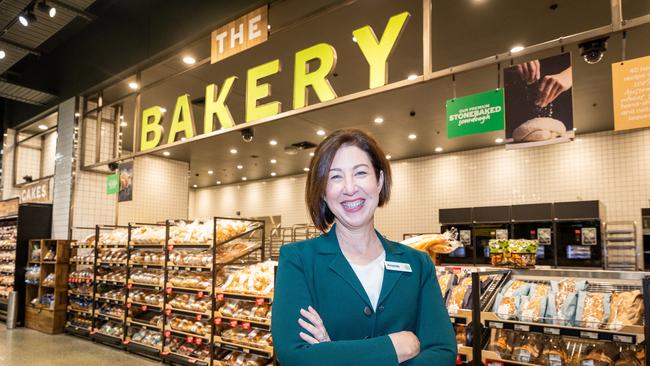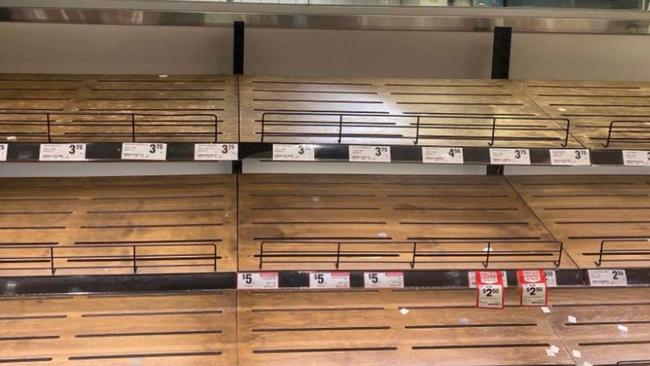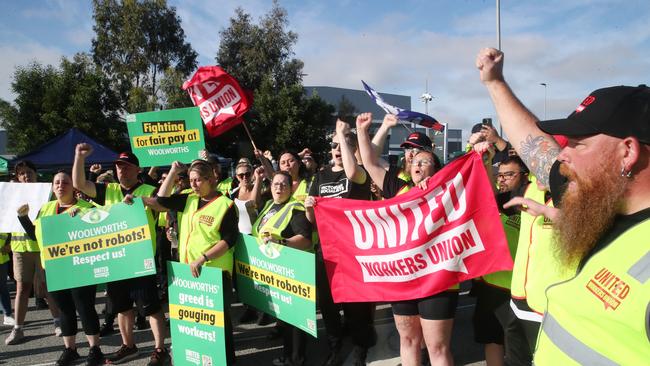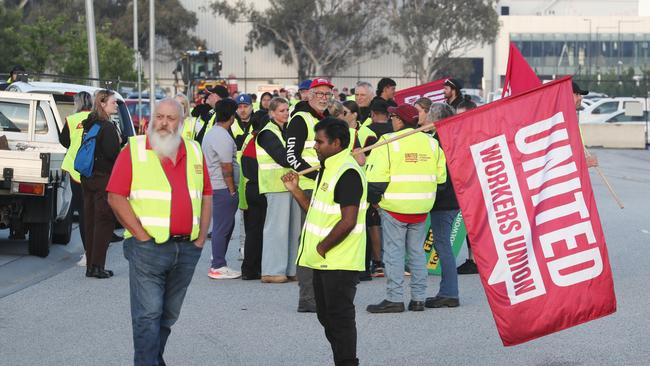Woolworths warns it has lost $50m in sales due to strikes
Union strikes at its distribution centres have cost Woolworths $50m in lost sales as its shelves lie empty and shoppers go elsewhere, and with Christmas just weeks away there could be more pain for the supermarket giant.

The unions are hitting Woolworths right where it hurts, with the supermarket giant warning it has lost $50m in sales since the start of industrial action at four distribution centres last month which has seen many of its stores plagued with empty shelves, sending shoppers elsewhere.
The industrial action, empty shelves and shoppers being forced to cross the road to go to rivals comes just three weeks before Christmas when the wider $120bn supermarket sector is expected to do a roaring trade in holiday and festivities orders to cater for Christmas lunches and dinners.
Woolworths executives will now be scrambling to secure much-needed groceries and Christmas products for their stores, with unsatisfied customers likely to be unimpressed by the shortages, affecting Woolworths’ reputation in the market.

While the lost sales bill now stands at $50m, which is minute compared to Woolworths’ annual Australian supermarket sales of $50.7bn, the strike action could ruin the retailer’s Christmas and start to become a rising cost for the group.
E&P retail analyst Phillip Kimber estimates that the one-off impact of $50m in lost sales would equate to 0.4 per cent of the supermarket’s second quarter sales and 0.1 per cent of fiscal 2025 sales.
The lost sales to date would also hurt first-half earnings of its Australian supermarkets by around $8m, according to Mr Kimber, and squeeze group first-half earnings by about $5m or 0.6 per cent.
It is another major headache for recently appointed Woolworths chief executive Amanda Bardwell, only 13 weeks in the role, as she attempts to solve the industrial dispute without causing her wages bill to balloon by giving in to the union’s demands, keep shoppers happy and salvage the retailer’s reputation.
Ms Bardwell also faces a protracted court battle with the Australian Competition & Consumer Commission which has taken action against Coles and Woolworths over their alleged use of fake discounts to lure in shoppers.
“We sincerely apologise to all of our customers for the inconvenience caused by the inconsistency of supply across some product lines in some of our stores in Victoria, southern NSW and ACT,” Ms Bardwell said on Tuesday.
“We are working hard to try to improve the situation and would like to thank our customers for their understanding and for treating our teams with respect.”

Woolworths on Tuesday updated the market on the cost of the industrial action, triggered by a strike over enterprise agreements at three distribution centres in Victoria and one centre in NSW.
The industrial dispute involves the United Workers Union. It has been a growing problem for the retailer for over four months, with picket lines formed outside distribution centres, groceries stranded and empty shelves at Woolworths stores especially in Victoria.
The cost in lost sales is mounting, with Woolworths saying in its update that until the industrial action is resolved, a further impact on sales was expected.
“The full financial impact at this stage is unknown,” Woolworths said on Tuesday.
“It will be dependent on the duration and extent of the ongoing industrial action across the affected sites, and the time taken to rebuild inventory ahead of the Christmas trading period.”
It said this one-off impact was not factored in to the forecast earnings range provided for its flagship Australian supermarkets arm in October.

The industrial action, and rising vitriol at picket lines across the country, was triggered after the UWU commenced indefinite strike action at the four distribution sites on November 21, with the strike action now extending to 12 days.
Woolworths says the UWU is seeking pay increases at these sites in excess of 25 per cent over three years, materially above inflation, at a time when Woolworths is actively working to keep food and groceries affordable for customers facing ongoing cost-of-living pressures.
“The UWU is also demanding there be ‘no enforceable performance standard or rate’ which would preclude Woolworths Group’s ability to manage productivity,” Woolworths said.
“The use of labour standards to manage productivity is common practice in supply chains globally and in Australia.”

Woolworths said while each site was negotiating its own enterprise agreement, Woolworths Group had put forward several offers with competitive pay that was above local market rates, and well above the Storage Services Award.
The latest offers would take hourly rates at these sites to approximately 40 per cent above the award, it said.
The Shop, Distributive and Allied Employees’ Association also represents a number of the team members at the affected sites. The SDA has recently endorsed an offer by Woolworths to resolve the enterprise agreement negotiations at one of the affected sites, the Melbourne South Regional centre.




To join the conversation, please log in. Don't have an account? Register
Join the conversation, you are commenting as Logout